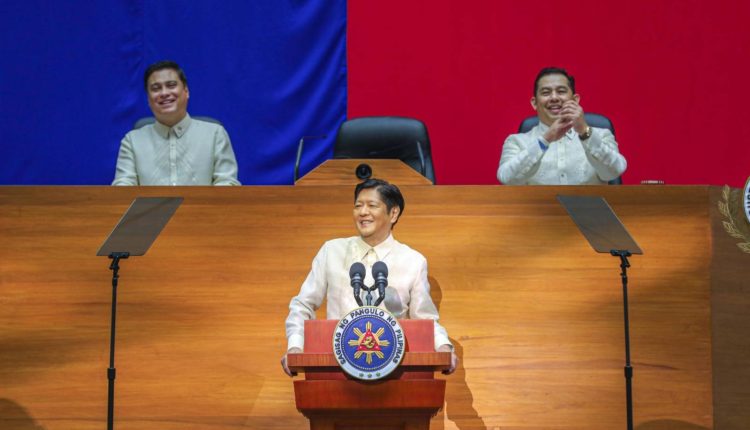PBBM presents legislative agenda for Congress’ approval, support

PRESIDENT Ferdinand Romualdez Marcos Jr., on Monday, July 25, 2022, delivered his first ‘State of the Nation Address’ (SONA) where he also presented the incoming 19th Congress with a total of 19 proposed legislations.
The incoming Congress had elected Leyte Representative and 18th Congress Majority Leader Rep. Ferdinand Martin Romualdez as House Speaker. He is the first cousin of the President.The Senate, on the other hand, elected Sen. Juan Miguel Zubiri as Senate President, who also vowed to support the President’s legislative agenda.
But even if Congress fully agrees with all that Pres. Marcos Jr., wants, doubts linger if Congress can approve all of them during the 3-years of the 19th Congress.
Below are the proposals that lawmakers are expected to deliberate and approve:
- National Government Rightsizing Program (NGRP) that seeks to “enhance the government’s institutional capacity to perform its mandate and provide better services, while ensuring optimal and efficient use of resources;”
- Budget Modernization Bill to “institutionalize” the ‘cash-based budgeting system’ (CBS) under Executive Order No. 91, Series 2019;
- Tax Package 3: Valuation Reform Bill that would provide for the establishment of real property values and valuation standards across the country and the development of Real Property Information System as the database of all real property transactions and declarations in the country;
- Passive Income and Financial Intermediary Taxation Act (PIFITA) to reform the taxation of capital income and financial services;
- E-Government Act to establish the E-Government Master Plan which shall cover all e-government services and processes;
- Internet Transaction Act or E-Commerce Law “to establish an effective regulation of commercial activities through the internet or electronic means to ensure that consumer rights and data privacy are protected;”
- Government Financial Institutions Unified Initiatives to Distressed Enterprises for Economic Recovery (GUIDE) “to provide financial assistance to distressed enterprises critical to economic recovery;”
- Establishment of a Medical Reserve Corps under the Health and Emergency Management Bureau (HEMB) of the DOH;
- National Disease Prevention Management Authority to create the Center for Disease Prevention and Control (CDC) attached to the Department of Health;
- Creation of the Virology Institute of the Philippines as an attached agency of the Department of Science and Technology;
- Establishment of the Department of Water Resources;
- Unified System of Separation, Retirement and Pension for military and uniformed personnel (MUPs) retired by reasons of disability;
- E-Governance Act to promote use of internet, intranet and other ICTs to provide opportunities for citizens;
- National Land Use Act;
- National Defense Act to amend the “antiquated” National Defense Act of 1935;
- Mandatory Reserve Officers’ Training Corps (ROTC) and National Service Training Program (NSTP);
- Enactment of an Enabling Law for the Natural Gas Industry to “foster” the development of the Midstream Natural Gas Industry in a bid to strengthen Philippine energy security by diversifying the country’s primary sources of energy and promoting the role of natural gas as a complementary fuel to variable renewable energy’
- Amendments to the Electric Power Industry Reform Act or EPIRA (Rep. Act No. 9136) “to improve the implementation of the law’s provisions and enhance its effectiveness to address high cost of electricity, alleged market collusion, and insufficient power supply by “restructuring” the Energy Regulation Commission (ERC) to foster accountability and improve the commission’s government system that would ensure consumer protection and in enhancing the competitive operation of the electricity market; and,
- Amendments to the Build-Operate-Transfer (BOT) Law to “improve” the implementation of the Public Private Partnership (PPP) Program.


